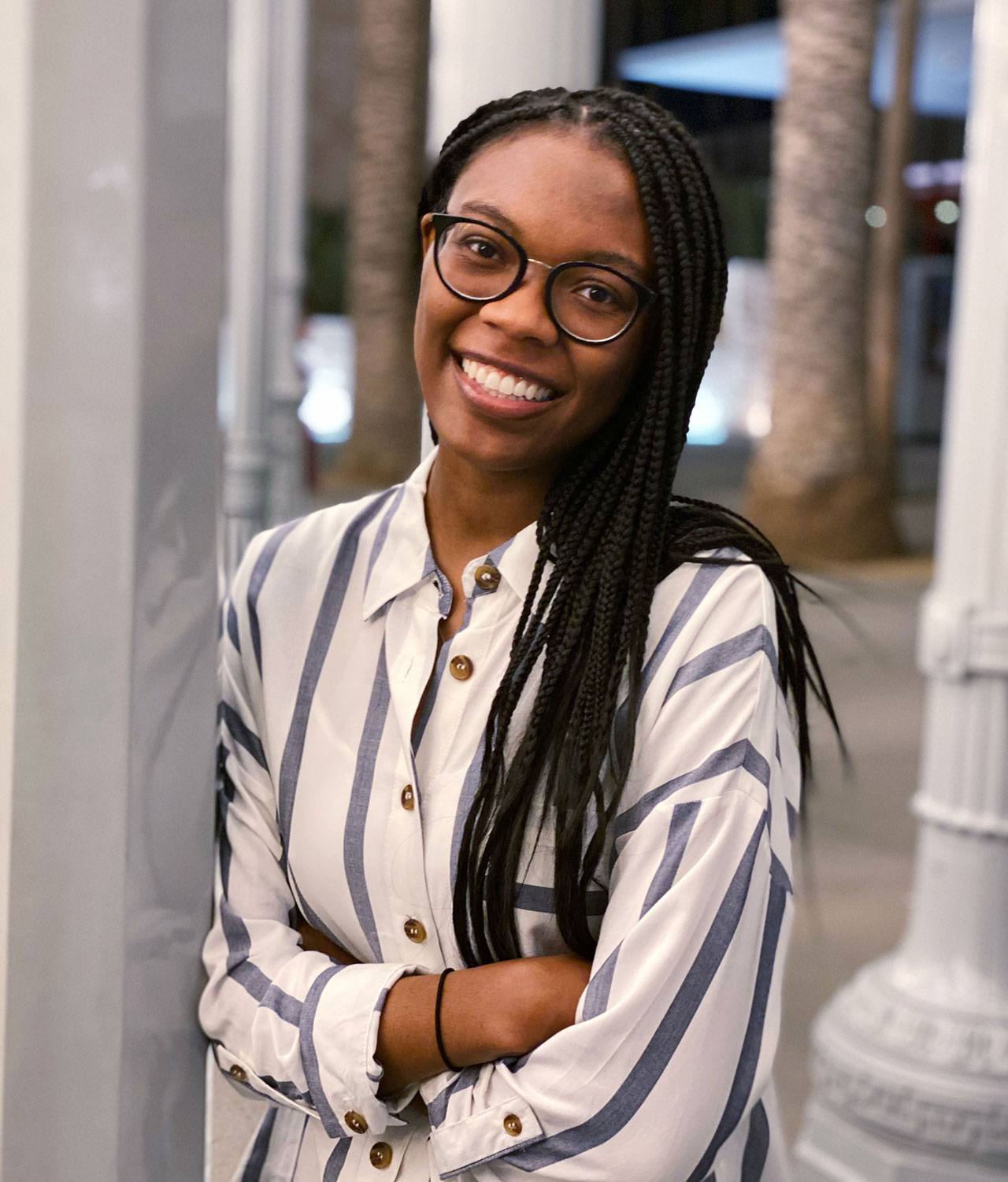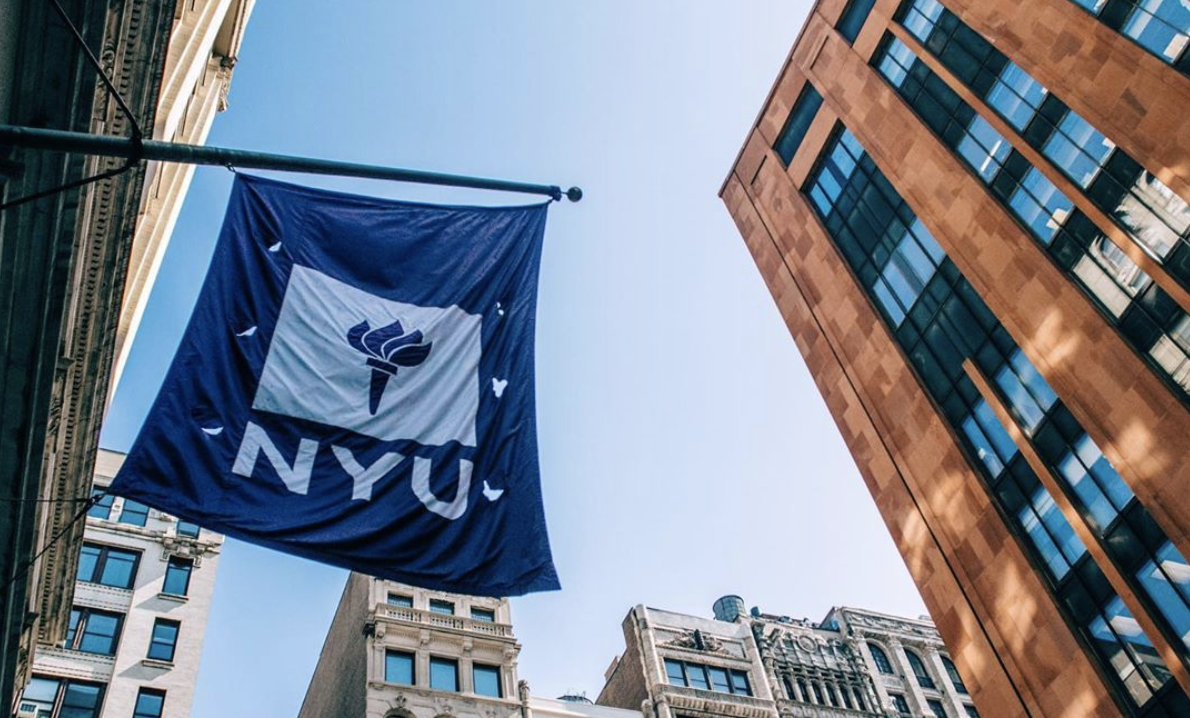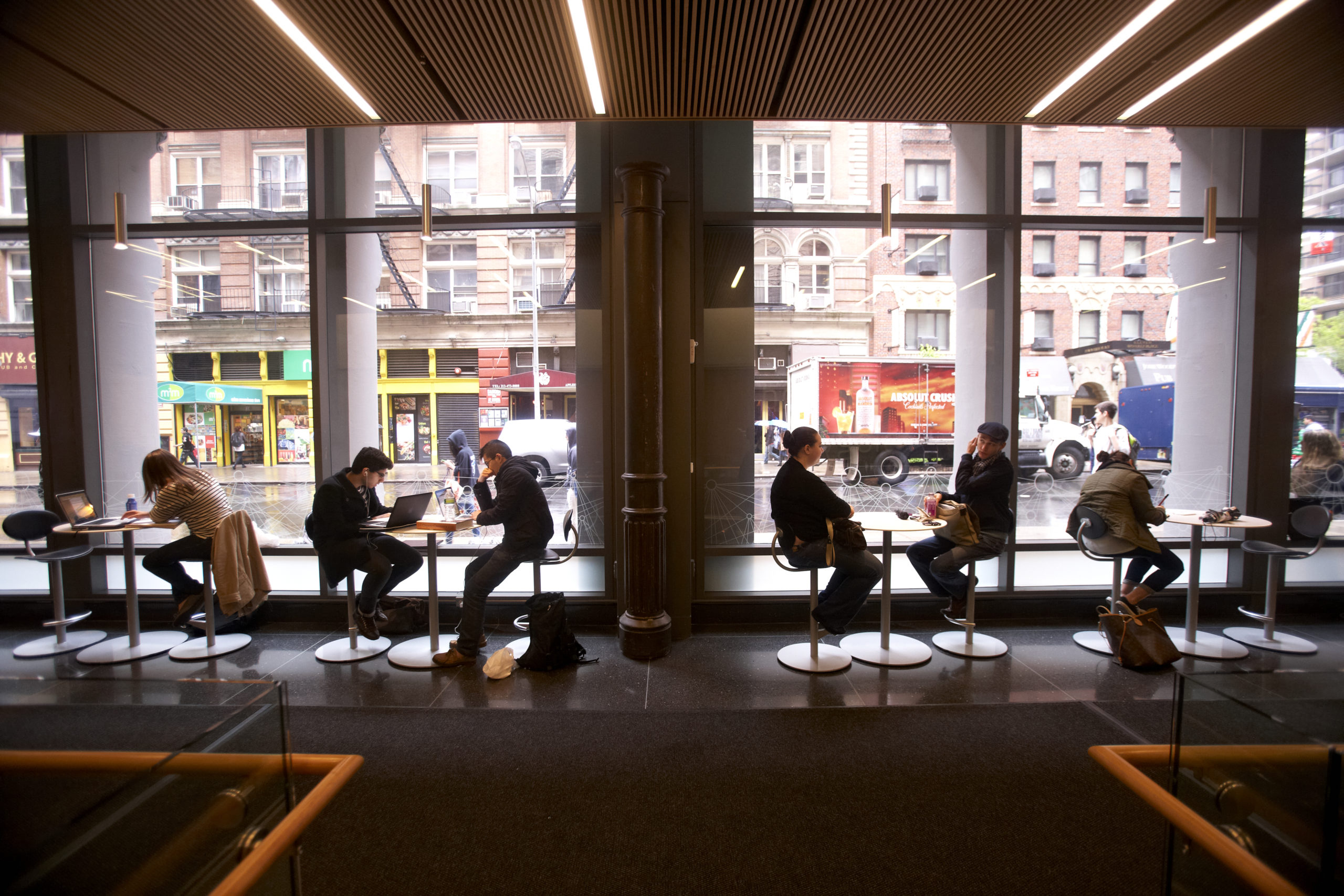
NYU was founded to be “metropolitan in character, democratic in spirit,” and responsive to the needs of New York City’s rapidly evolving population. Today, these themes remain at the core of NYU. And they have led the University to develop 10 distinct undergraduate schools and colleges in New York City, degree-granting campuses in Abu Dhabi and Shanghai, and 12 additional global academic centers and programs in cities around the world. NYU’s urban spirit is fundamental to the student experience. For example, at NYU, professors are experts in their fields who are tapped into local networks; courses take advantage of the opportunities and interact with the city culture; and internships are right around the corner. With so many possibilities, NYU students have the power to shape their academic journey to fit their interests. And nowhere is this more true than at the Gallatin School of Individualized Study.
Located in the heart of New York City in Greenwich Village, NYU Gallatin offers a small-college atmosphere along with the resources of NYU, a large research institution. Gallatin’s innovative educational approach emphasizes scholarship, intensive advising, and a distinct combination of flexibility and academic rigor. Here, a liberal arts core provides a strong foundation for students to map their own journey. By involving students in key decisions about their education, Gallatin helps them foster passionate commitment and excel in an increasingly connected and diverse world.
At Gallatin, there are no traditional majors. Instead, Gallatin students create an individualized program of study under the guidance of faculty advisers. At Gallatin, this program of study is called a concentration. It reflects students’ intellectual interests and professional goals. Often, these concentrations break the boundaries between disciplines. And in addition to amazing Gallatin courses, students also take courses across NYU’s schools, from Tisch to Tandon and Steinhardt to Stern—as well as tap into study abroad opportunities on six continents.
Learn Without Limits
At Gallatin, you’ll work closely with your advisors to develop an integrated, multidisciplinary program of study. You can take courses at the various schools of NYU as well as independent studies, internships, and Gallatin’s own interdisciplinary seminars, writing courses, and arts workshops as you bring different disciplines into conversation with one another around the topic of yoru concentration. Your focus may shift as you progress through your academic journey and through ongoing conversations with your advising team, but it will remain fundamentally anchored by a central idea and question. Whether you come to Gallatin with a plan in mind or with a desire to explore, it’s a place for individuality and discovery. Here, you will find the answers that matter to you.
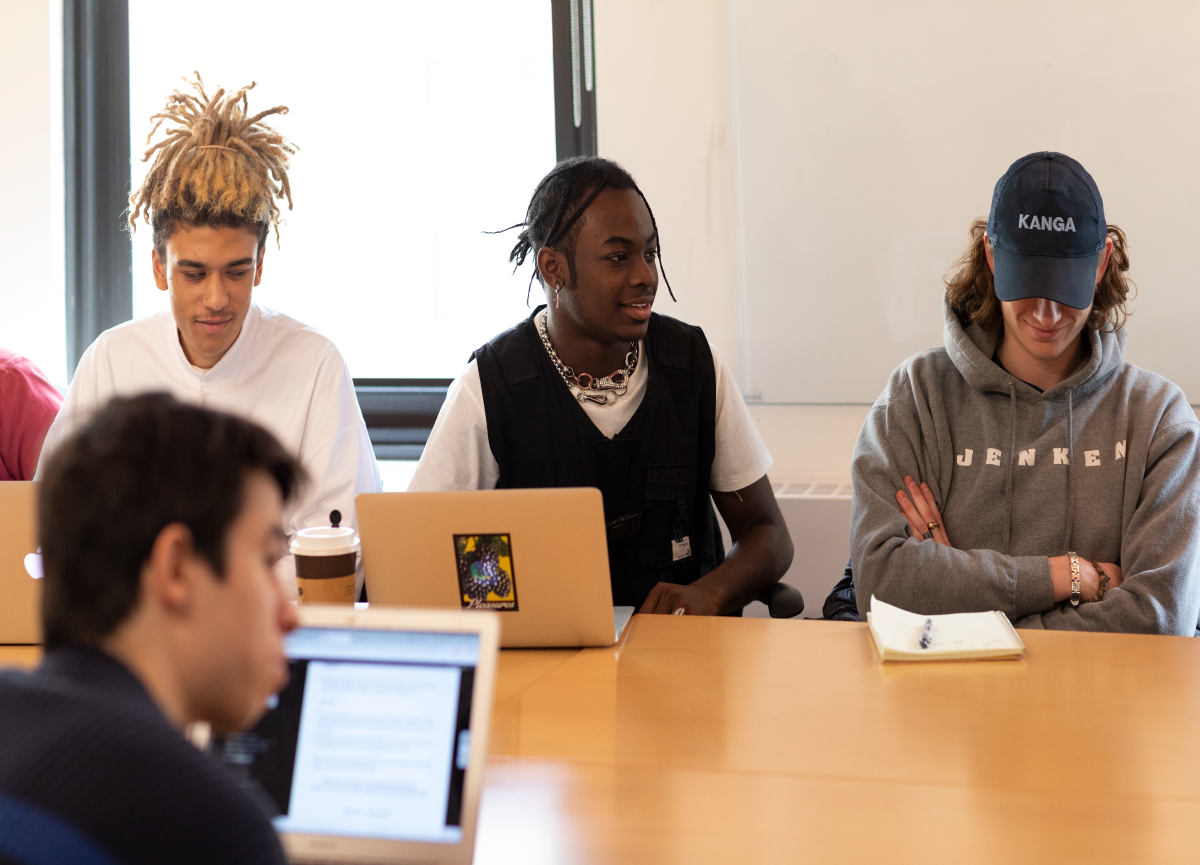
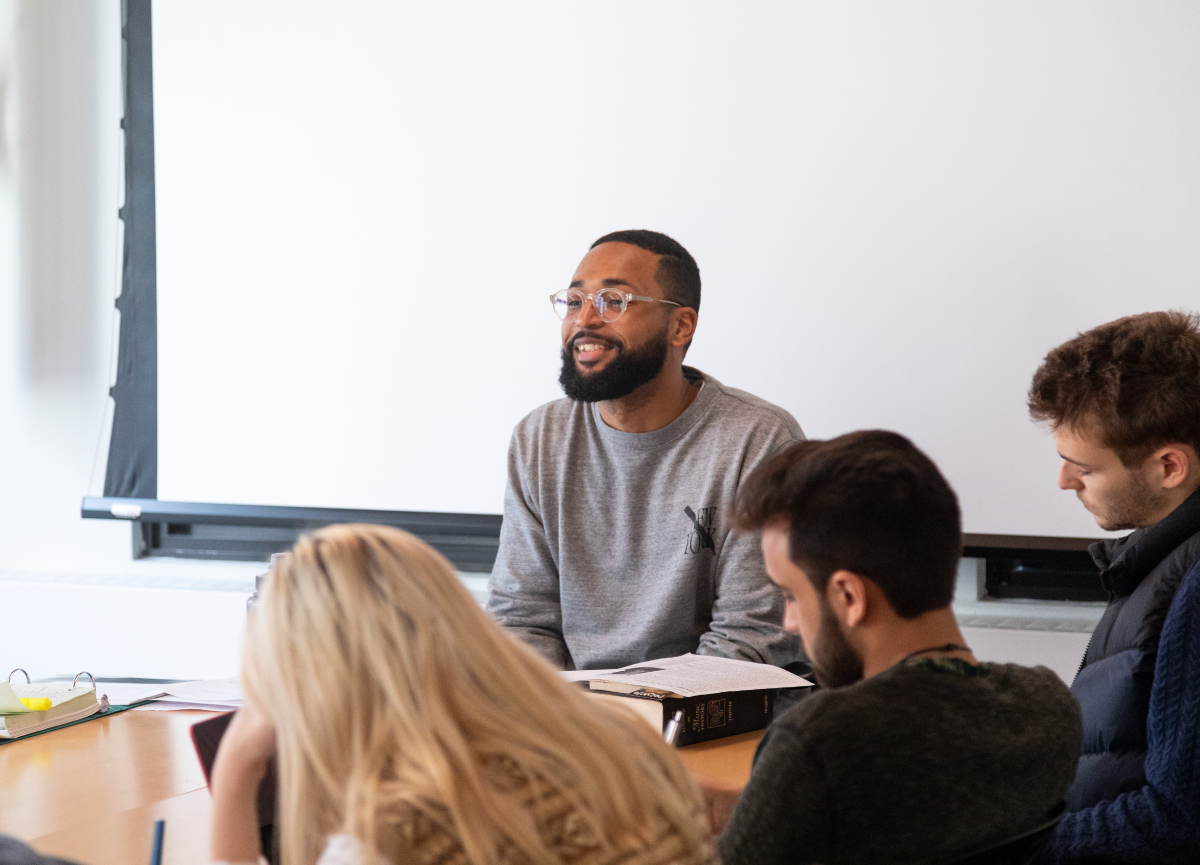
Concentrations
Gallatin students open intersections in all disciplines. Here are some examples of past concentrations:
- Biology and dance
- Comparative religion and eastern philosophy
- Ethics, public policy, and international development
- Human rights law and human expression
- Intersection of film, technology, and politics with a focus on youth and social change
- Political memory and the burden of history
- The sociology and politics of urban agriculture
- Writing and performing race
For more, check out Gallatin’s website.
The First-Year Experience
Every year, Gallatin offers more than 100 interdisciplinary seminars to first-year students. The seminars delve into major issues or themes in—and across—the arts and humanities, social sciences, and sciences. What’s more, they are an excellent way to get into the Gallatin mindset. The approach is also global, drawing from important texts across cultures and histories. And the courses are capped at around 22 students, creating the opportunity for in-depth discussions. Recent seminars include:
- The Lives, Deaths and Rebirths of Public Space: Analyze questions surrounding public space. What are public spaces and whom do they belong to? How do we reclaim and reinvigorate public spaces as they disappear from cities around the world?
- Migration and American Culture: Visit museums and research centers across New York City while examining the immigrant and migrant narratives of varied racial and ethnic groups in the United States.
- Predicting the Future: Examine practices of prediction from different cultures, historical eras, and academic disciplines—from reading goat entrails to calculating carbon dioxide concentrations—that span religious systems, political policy, business trends, and scientific theories.
Peruse the website for more first-year seminars.
Courses Beyond Boundaries
Beyond your first year, Gallatin courses continue to reflect the school’s focus on multidisciplinary approaches, excellent teaching, and a unique combination of flexibility and academic rigor. Below are highlights of Gallatin’s list of more than 350 courses:
- African Cities
- Collective Curating
- Historicizing Humankind
- The Meme: Images and Words Make Ideas
- NYC Coastlines: Past, Present, and Future
- Settler Colonialisms and Black/Indigenous Resistances Throughout Abya Yala (the Americas) and Beyond
- Sports, Race and Politics
- Understanding the Universe
To discover more, visit the courses page.

Spotlight: Urban Studies
As a school that embraces NYU’s position in and of the city, Gallatin has robust offerings in urban studies. For example, students can select from a broad range of courses and participate in the Urban Democracy Lab, which promotes just and sustainable urban development through scholarship and programming. What’s more, the lab offers research fellowships to undergraduates.
Accomplished Alumni
In her time as a student, Safia Elhillo, Class of 2013, studied poetry as a tool in therapy and founded Slam NYU. After she graduated from Gallatin, her novel Home Is Not a Country was longlisted for the 2021 National Book Award. Forbes even listed her on their Africa’s 2018 “30 Under 30” list.
Kris Diaz—a Gallatin alum and professor—is a Pulitzer Prize finalist in Drama and the recipient of a Guggenheim Award. He has also developed pilots for HBO and FX, written for the first season of Netflix’s GLOW, and adapted the musical Rent for Fox.
As an undergraduate, Angie Liao, Class of 2017, received sponsorship from the Women’s Foreign Policy Group as well as a Gallatin Global Fellowship in Human Rights where she worked with Beijing’s largest public interest legal NGO. She went on to study at Yale Law School and hopes to fight for worker and social justice.
Other notable alumni include Adam Mosseri, the head of Instagram and former head of product at Facebook, and Midori Goto, an award-winning violinist who also founded several nonprofit organizations.
Standout Faculty
Gallatin’s exceptional faculty continue to teach and work at the intersections of disciplines. Therefore, as a student here, you will benefit from their knowledge, experience, and connections.
For example, Louise Harpman studied East Asian studies, then social anthropology, then architecture. With a focused interest in interdisciplinary design, she founded Louise Harpman__PROJECTS, which now focuses on architectural design, design research, and urban design.
Professor Kwami Coleman is an expert in improvised music and founding member of Afro-Lantin@ Forum, and non-profit devoted to the study and increased visibility of Latinos of African descent, while Professor Vasuki Nesiah teaches human rights and legal and social theory, and has published widely on topics including the history and politics of human rights, international criminal law, reparations, and global feminisms and decolonization. She is also a founding member of Third World Approaches to International Law movement.
Gallatin’s professors Eugenia Kisin and Karen Holmberg codirect the Gallatin WetLab, a space to seek interdisciplinary solutions to climate change. And Gianpaolo Baiocchi, a professor in critical social theory and cities, heads Gallatin’s Urban Democracy Lab.
In addition, you will meet faculty members who are scholars of feminism and anti-colonial epistemologies; existentialist thought; and environmental philosophy—among an abundance of other callings.

Learn More About Gallatin
Outside of this immediate community, NYU’s network of over 650,000 alumni provides both mentorship and opportunity to Gallatin students. These alumni paths have enabled 98 percent of NYU’s Class of 2020 to hold internships or part-time jobs as undergraduates. You can also choose to study away at NYU’s global locations for anywhere between three weeks to a full year. In fact, Gallatin houses its own array of global courses that naturally fulfill its graduation requirements. So you might find yourself in Madrid, London, or Prague. What’s more, financial aid is available for every location.
To learn more about the Gallatin School of Individualized Study, you can read about creating a concentration or unpack the program in practice. You can also browse photos from Gallatin’s archive and join the school in celebrating its 50th anniversary.

